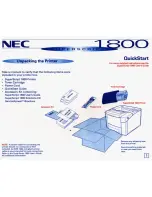
14
ROCK IMAGER User's Guide | Chapter 4: Overview
ROCK IMAGER is controlled by the
ROCK IMAGER software
, which enables you to interact with your
experiment plates. Your computer screen becomes the microscope’s eyepiece and physical optics
and imager controls are replaced by on-screen controls.
All ROCK IMAGERs integrate with
ROCK MAKER
, FORMULATRIX’s crystallization experiment lifecycle
management software. Automated imaging is scheduled and managed through ROCK MAKER.
User Interfaces
ROCK IMAGER Software
ROCK MAKER Software
















































